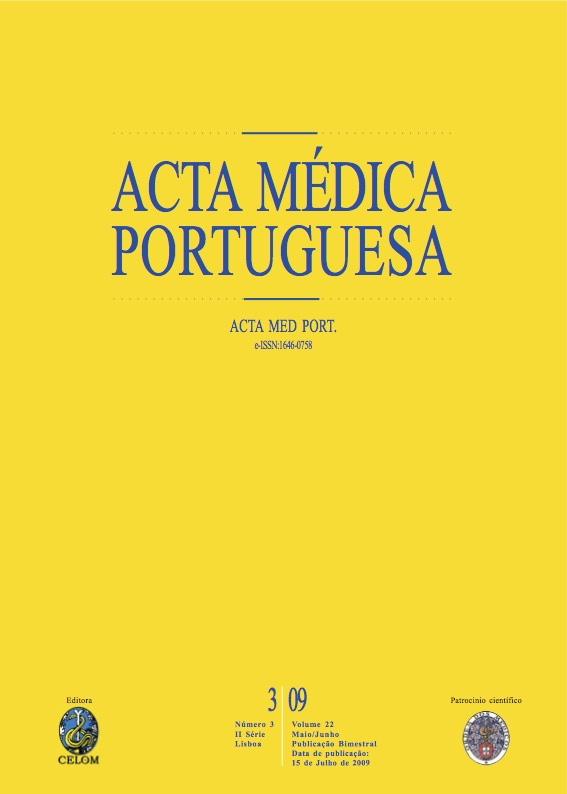Self-reported hearing-loss in the Portuguese population: evidence from the 4th National Health Survey.
DOI:
https://doi.org/10.20344/amp.1702Abstract
Hearing loss is associated with a negative social impact, which implies a lower quality of life. Despite its negative consequences the prevalence of hearing loss in the Portuguese population is not well known.The aim of this study was to assess the prevalence of self-reported hearing loss, in a representative sample of the Portuguese population.We analysed data from the 4th Portuguese National Health Survey (2005-2006), conducted by the National Institute of Health, Dr. Ricardo Jorge and the National Institute of Statistics. Participants were selected from households in the seven regions of Portugal (NUTS II classification), using a multi-stage random probability design. Trained interviewers conducted face-to-face interviews in each household and obtained information on social and demographic characteristics, and hearing loss situation. The prevalence of self-reported hearing loss was estimated by sex, age group, región and level of education.The prevalence of self-reported hearing loss was higher in men, and increased with age, in both sexes. The crude prevalence of hearing loss was higher in Alentejo region (11,0% in men and 9,5% in women) than in any other Region. After age-adjustment, the Northern región had the highest percentage (11,6%), and the Alentejo region the second value (9,7%). The Madeira Region had the lowest age-adjusted prevalence (5,0%). The percentage of hearing loss decreased with higher education, for most age groups both in men and women.This study showed that hearing loss was associated with high age groups, male gender and lower level of education. Facing this situation, it is important to promote epidemiological and clinical investigation about hearing loss, including associated exposures and their distribution in Portuguese populations.Downloads
Downloads
How to Cite
Issue
Section
License
All the articles published in the AMP are open access and comply with the requirements of funding agencies or academic institutions. The AMP is governed by the terms of the Creative Commons ‘Attribution – Non-Commercial Use - (CC-BY-NC)’ license, regarding the use by third parties.
It is the author’s responsibility to obtain approval for the reproduction of figures, tables, etc. from other publications.
Upon acceptance of an article for publication, the authors will be asked to complete the ICMJE “Copyright Liability and Copyright Sharing Statement “(http://www.actamedicaportuguesa.com/info/AMP-NormasPublicacao.pdf) and the “Declaration of Potential Conflicts of Interest” (http:// www.icmje.org/conflicts-of-interest). An e-mail will be sent to the corresponding author to acknowledge receipt of the manuscript.
After publication, the authors are authorised to make their articles available in repositories of their institutions of origin, as long as they always mention where they were published and according to the Creative Commons license.









